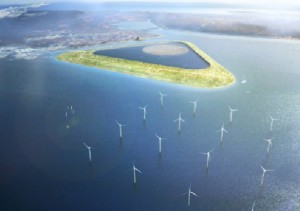Tags
Carbon war room, Caribbean, Climate change, development, environment, renewable energy, Richard Branson, sustainability, sustainable development initiatives, sustainable energy, Ten island challenge
Launched at Rio+20 Summit last June, by Richard Branson, the Carbon War Room and Christiana Figueres, Executive Director of the United Nations Framework Convention on Climate Change (UNFCCC), this initiative dubbed the ‘Ten Island Challenge’ aims to work with pioneering island economies to reduce dependency on fossil fuels through the acceleration of commercial opportunities on islands, attracting expert engineering firms and investment.
Islands across the globe face huge risks to their futures as they are extremely vulnerable to the effects of climate change, and they also face huge financial challenges in the way they live today. Caribbean island St. Lucia, recently joined the challenge, joining its counterpart Aruba who joined the challenge in 2012, to focus its efforts on a transition off fossil fuels through a range of initiatives from renewable energies as well as waste and water efficiency. The partnership essentially brought together the expertise and political will to create and implement a fully integrated strategy for sustainable prosperity.
Although sustainability and low carbon plans aren’t new to island economies, successful implementation is. Small Island Developing nations like St. Lucia, Aruba who traditionally face economic crises related to continuous depletion created by rising costs of imported oil, can turn the tide by embracing the opportunities inherent in harnessing free resources like the wind and the sun for power. The Ten Island Challenge aims to highlight these and other opportunities on the island and their implications for sustainability and job creation.
The Carbon War Room reaches out globally for the best solutions and most competitive bids in this process. The goal? A world free of fossil fuel emissions as a result of a profitable transition towards renewable energies. The War Room team has been on the ground both in Aruba and St. Lucia and is looking to expand to ten other islands, including Grenada, and the British Virgin Islands. Immediately afterwards, they plan to head to the Pacific Islands.
Discussion questions:
- Can anyone speak to the progress of this initiative at present?
- What do you think are the pro’s and con’s of such a plan if successfully implemented?
- What do you think are the potential drawbacks to this plan?
- What impact do you think this plan will have on the tourism industries of the islands in which it is implemented?


I really think this is a great idea,and you are right about the financial situation in the region.Most of the island are going through a massive financial breakdown since the recession.Right now from what I know, its time the heads of Governments in the region move a bit faster on the iniatitive,putting they Feed In Tariff in place letting the international investor /capital group who are in the energy business get involve.There are million of dollars just sitting there, that can be use to impliment these energy programs.There are area where Governments and Private Energy Companies,can partner together for the benefit of the Country and the people of the country.We are ready and willing to move on….the time is now.